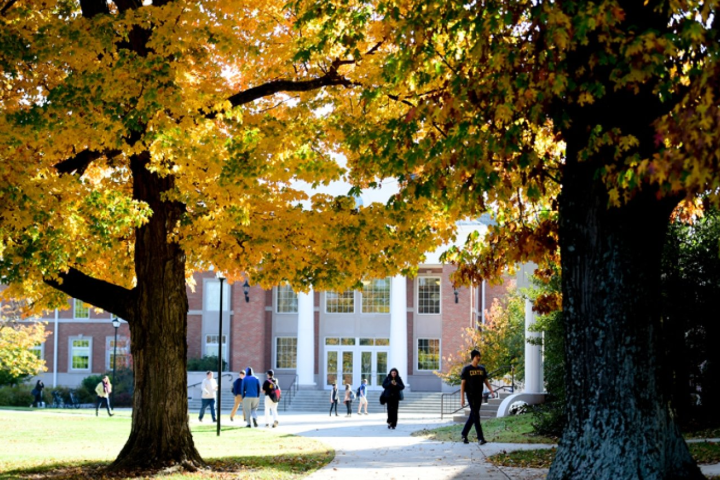by Daniel Covington
It’s no secret that many students at Centre College rely on Federal Work-Study jobs to help make ends meet. Over the past few years, a growing number of students have begun pushing for the college to raise student wages—arguing that the current pay doesn’t reflect either the cost of living or the value of student labor.
What Students Are Saying
In interviews with Centre students, many said they appreciate the convenience of campus jobs but feel the pay is far too low. “The work is easy and flexible,” one student noted, “but it just doesn’t cover much.” Others mentioned that they prefer working at the Norton Center, where pay is a few dollars higher—something they described as “more reasonable for a college student in Kentucky.”
A number of students also said they work off campus to supplement their income, since their campus wages aren’t enough to cover food, gas, and other daily expenses.
Understanding Federal Work-Study
According to the U.S. Department of Education’s website, StudentAid.gov, the Federal Work-Study (FWS) program provides part-time employment to college students with financial need, allowing them to earn money for educational and personal expenses. Both public and private Kentucky colleges participate, including the University of Kentucky, Eastern Kentucky University, and Centre College.
Most work-study jobs are located on campus—in offices, libraries, or residence halls—though some involve community service positions with local schools or nonprofits. Students are paid hourly and typically work between 10 and 20 hours per week. In Kentucky, the pay rate often aligns with the state and federal minimum wage of $7.25 per hour, though some colleges choose to pay slightly more for specialized or advanced roles.
Student Wages Nationwide
Changes to the national work-study program could make things even tougher for both colleges and students. The One Big Beautiful Bill (OBBB) Act, scheduled to take effect in July 2026, will reduce the federal government’s contribution to student wages from 75% to 25%, forcing colleges to cover the remaining 75%. According to the College Benefits Research Group, this shift could result in fewer available positions, especially at smaller institutions with limited budgets.
The same report notes that the 2026 federal budget proposal includes nearly $1 billion in cuts to the work-study program, which could further shrink opportunities for students who depend on campus jobs. In addition, new federal rules now prohibit using FWS funds for political work, such as campaign roles or voter registration drives, reinforcing the program’s academic and community service focus.
Centre vs. Other Kentucky Colleges
Compared to other Kentucky institutions, Centre College ranks among the lowest-paying work-study programs in the state.
At the University of Louisville, work-study students earn $15 per hour, with non–work-study jobs averaging around $13.93 (louisville.edu). At the University of Kentucky, hourly wages range from $12 to $20 depending on the position (studentsuccess.uky.edu). Even Lindsey Wilson College, a smaller private institution, pays $8 per hour for work-study positions—slightly above the federal minimum (lindsey.edu).
Centre, by contrast, continues to pay the federal minimum wage of $7.25 per hour, placing it at the bottom among Kentucky colleges.
The Wage Gap in Danville
The issue becomes more striking when viewed in a local context. Within 35 miles of Danville, no jobs currently advertise wages below $13.50 per hour, nearly double what Centre students earn. This raises an uncomfortable question: are student workers being taken advantage of?
For many, working off campus isn’t realistic due to transportation challenges, job availability, or visa restrictions. That leaves on-campus jobs as their only option, even when they pay significantly less.
Centre’s broader campus community has also seen wage-related concerns. In june, faculty members agreed to redirect a portion of their annual raise toward boosting pay for custodial and maintenance staff after months of staff advocacy. As reported by LEX 18 News, custodian Jayden Sims said, “This has been a constant issue… They keep saying it’s not in the budget, but there’s money for new buildings, not raises.”
Is the Problem Centre—Or Something Bigger?
Low wages aren’t unique to Centre. Across the country, pay rates have failed to keep up with inflation, housing costs, and tuition. While states like California have taken steps to raise minimum wages, Kentucky’s has remained stagnant at $7.25 since 2009.
Ultimately, part of the solution must come from lawmakers in Frankfort. Raising the state minimum wage would benefit not only student workers, but thousands of Kentuckians earning low hourly pay.
At the same time, Centre could make changes of its own. Not all student jobs are equal—some, like residence hall desk assistants, can do homework during shifts, while others, such as team managers or laundry workers, require constant attention. Wages should reflect that difference in responsibility.
It’s hard not to notice the contrast between Centre’s multimillion-dollar facilities—new buildings, sculptures, and the $50 million Champions athletics complex—and the stagnant pay for student workers. Even if many of those projects are funded by donor gifts earmarked for specific purposes, the optics are striking. Students see the money all around them but feel little of its benefit in their paychecks.

